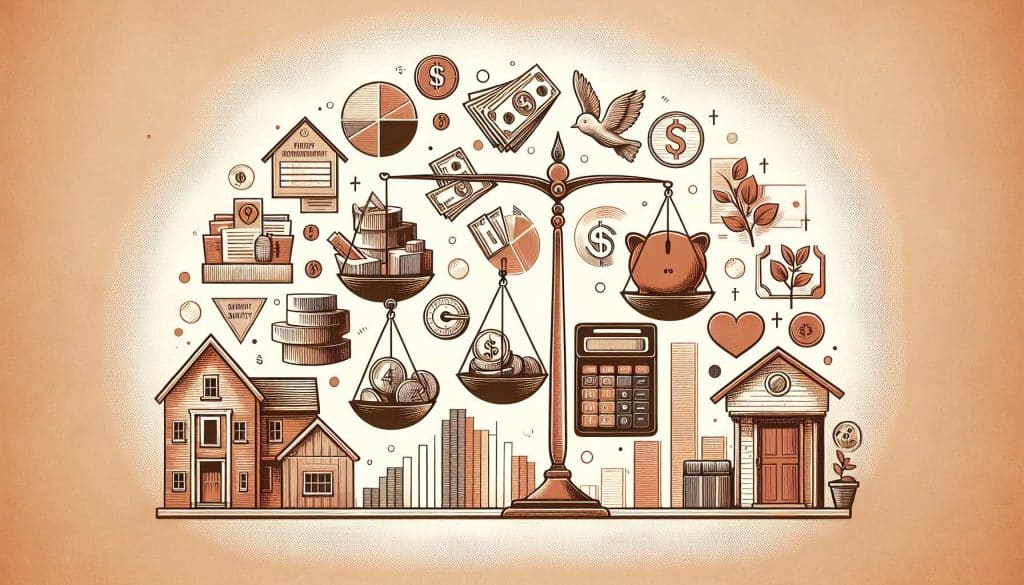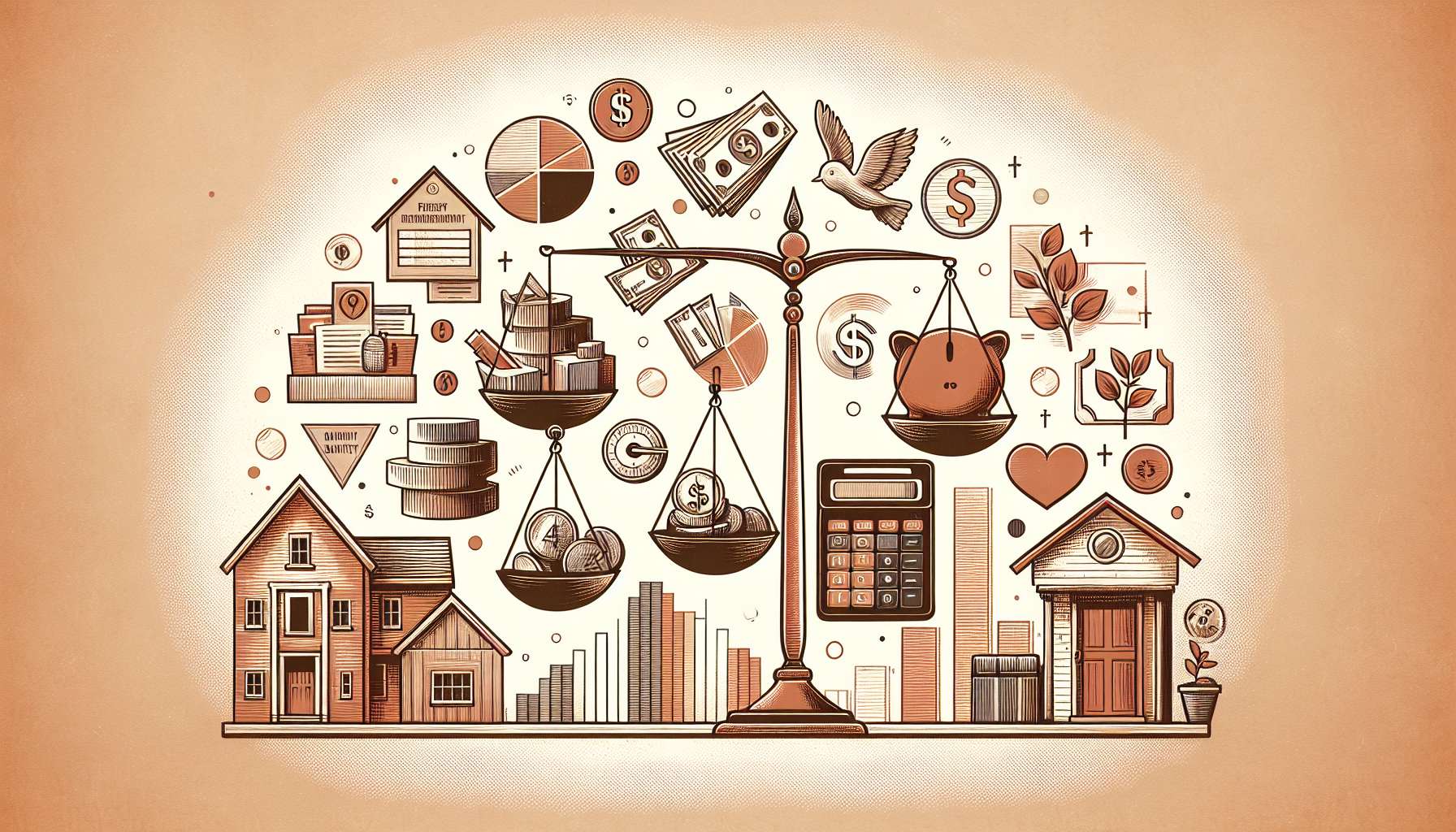Practical Guide to Building a Personal Budget for Financial Stability

Anúncios

Building a Financially Secure Future: Fundamentals of Personal Budgeting
In today’s world, managing personal finances wisely is more important than ever. Knowing how to effectively budget your money is a key skill that can lead to financial stability and future success. With expenses, savings, and investments all demanding attention, having a clear understanding of where your money is going is vital. This article sheds light on personal budgeting essentials, offering insights and strategies to empower individuals to seize control over their finances.
Personal budgeting plays a crucial role in one’s financial health. As living without a budget turns money management into a guessing game, prone to missteps like overspending and debt accumulation. Establishing a personal budget provides numerous advantages: it offers a financial blueprint to guide your spending, aids in reaching financial goals, and prepares you for unforeseen events. By following a budget, financial stress is minimized, allowing for informed decision-making and a clearer financial outlook.
The journey to creating a personal budget can feel challenging, but systematic steps simplify the process. Start by assessing your total income, including salaries, freelancing payment, and investment returns. Next, list your monthly expenditures, covering both fixed and variable costs. These insights help in identifying spending patterns, setting financial goals, and ultimately, formulating a successful budget plan.
Anúncios
Overview of Personal Budgeting
Establishing a functional budget goes beyond a one-time task; it requires consistent involvement. Regularly monitoring your spending compared to your budget ensures adherence. Utilizing technology, such as budgeting apps, makes this process smoother and more efficient. With the ability to automate expense tracking, staying aligned with financial goals becomes easier. Adjustments are necessary as your income or expenses change over time.
Reflecting on your budget monthly provides opportunities to learn and refine financial management strategies. Common errors in budgeting include setting unreachable goals, forgetting to save for emergencies, and neglecting irregular expenses. Recognizing these pitfalls and planning accordingly can strengthen your budgeting efforts. Being prepared for unexpected costs, such as car maintenance, is crucial for avoiding financial strain.
Digital tools simplify personal budgeting considerably. With budgeting apps like Mint or YNAB, users can effortlessly track expenses and monitor goals. For those who prefer a hands-on approach, spreadsheets offer a customizable solution. Automated alerts from financial institutions regarding low balances or upcoming bills further assist in maintaining control over finances.
Anúncios
Key Characteristics and Strategies
- Understanding income, expenses, and spending patterns.
- Setting realistic, achievable financial goals.
- Regularly reviewing and adjusting your budget.
- Incorporating emergency savings and accounting for irregular expenses.
- Using technology to streamline budgeting tasks.
Benefits of Personal Budgeting
Personal budgeting offers numerous rewards that enhance one’s financial security. The discipline gained from budgeting equips individuals to achieve financial independence and reduces financial anxiety. The growth in confidence from managing finances leads to a more secure future. Furthermore, understanding the concepts of budgeting can be passed down to younger generations, helping them develop responsible financial habits early on.
By prioritizing financial transparency, individuals learn the balance between income and expenses, leading to a decline in unnecessary debt. A budget not only aids in covering essential expenses but also guides the pursuit of long-term financial goals. The security of knowing you’re prepared for emergencies brings peace of mind during unforeseen situations.
Additionally, budgeting empowers individuals to make informed financial choices, encouraging smart spending and mindful saving. The clarity gained from novel insights into spending habits unveils opportunities to enhance financial efficiency. Budgeting’s structured approach to finances simplifies complicated choices, marking the path to financial well-being.
Technology aids budgeting by offering features that measure progress towards goals, reducing the guesswork involved in managing money. Budgeting apps provide real-time financial snapshots, helping users remain proactive in financial management. Regular reviews promote awareness of financial standing, facilitating timely corrections.
- Increased financial discipline and control.
- Reduction in stress related to money matters.
- Improved confidence in making financial decisions.
- Equipped future generations with budgeting skills.
- Preparation for unexpected expenses and emergencies.
By committing to personal budgeting, individuals open doors to financial independence and security. This skill strengthens adaptability amidst financial changes, allowing for seamless transitions. Financial literacy, honed through budgeting, becomes an asset across different life stages. By cultivating a habit of budgeting, individuals tap into vast opportunities for financial growth and stability.
In conclusion, embracing the principles and practices of personal budgeting lays a solid groundwork for a financially secure future. Though it demands time and discipline, the long-term advantages it offers in achieving financial targets, reducing stress, and increasing financial confidence far outweigh the effort. Remember that every step counts, and consistency remains key in achieving the ultimate goal of financial stability for everyone.





